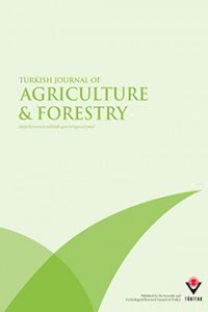Deciphering global DNA variations and embryo sac fertility in autotetraploid rice line
Embryo sac abortion, genome, polyploidy, resequencing, seed set,
- ISSN: 1300-011X
- Yayın Aralığı: Yılda 6 Sayı
- Yayıncı: TÜBİTAK
Mateja SENICA, Maja MIKULIC-PETKOVSEK, Franci STAMPAR
Kerem MERTOĞLU, Yasemin EVRENOSOĞLU, Mehmet POLAT
New technology (in situ grafting) for faster production of walnut (Juglans regia L.)
Dijana KULAČANIN, Borivoje BOGDANOVIĆ, Branislava GOLOŠIN, Sandra BIJELIĆ
Borivoje BOGDANOVIC, Sandra BIJELIC, Branislava GOLOSIN, Dijana KULACANIN
Sevinç KIRAN, Şebnem KUŞVURAN, Fatma ÖZKAY, Şeküre Şebnem ELLİALTIOĞLU
Seçil AKILLI ŞİMŞEK, Nora BORST, Salih MADEN, Deniz ÇAKAR, Simone PROSPERO, Y. Zekai KATIRCIOĞLU
Seçil Akilli ŞİMŞEK, Yakup Zekai KATIRCIOĞLU, Nora BORST, Deniz ÇAKAR, Simone PROSPERO, Daniel RIGLING, Salih MADEN
Erdem GÜLÜMSER, Medine ÇOPUR DOĞRUSÖZ, Uğur BAŞARAN, Hanife MUT
Uğur BAŞARAN, Medine Çopur DOĞRUSÖZ, Erdem GÜLÜMSER, Hanife MUT
